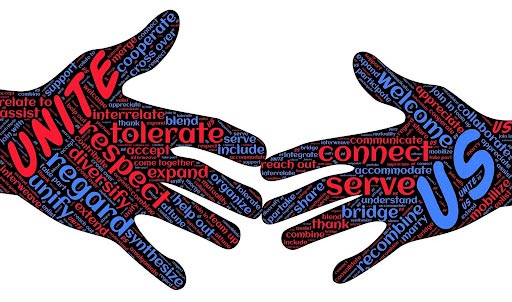Think
An approach to Auschwitz
Adrián Samayoa Mendoza, student of the Double Degree in History and Journalism, reminds us of the barbarity of Auschwitz and the important work of History and Journalism. report

Over the years the events of the Holocaust have blended into the totality of history: one more event among the hundreds of years in which humanity has existed. They seem distant and strange events, having to do with other times and other civilisations. Yet the Holocaust is closer than it seems.
Without realising it, we have come close to the Auschwitz chambers and unwittingly become, together with the soldiers, the executioners. Despite the good intentions of many people: books, films and photographs have transformed Auschwitz into an ungraspable image, only comprehensible as a whole. The concrete, the individual is lost. People are turned into figures, human beings are turned into numbers.
Like the soldiers, we depersonalise the victims by robbing them of their humanity. In addition, the events of the Holocaust have so permeated our imagination that we have become so familiar with them that we can even talk normally about the victims or joke about the Nazis over coffee. Now it seems that when we watch a film about the Nazis, it is not reality, but just a horror story.
Over the years the deaths of six million humans have become normalised to the point of being ephemeral, even repetitive. The biggest problem is that we are setting the direction ourselves. The most important trap in the study of history is to think that history is only the past. With this we turn concrete scenes, particular lives and free decisions into a mass of people who suffered, into a conglomerate of actions. We rob them of their richness staff and even pretend that we can start again: erase the past and start from scratch. A much more comfortable decision than facing human cruelty.
The next step is to turn individuals into figures, into numbers so large that they overwhelm rather than give an idea of what happened, and make us completely anaesthetised. So it is good to echo this terrible list, but to remember that behind every issue there is a life, behind every list an individual. Why do you think the memory of Anne Frank and her diary is so moving? This poignancy is because we are looking at a person, an individual in whom we can see ourselves reflected. Through her particular story we connect with the everyday life of her adolescence. On the other hand, with images of piles of dead people and cadaverous men, we prefer to look away and, in doing so, we seek to forget it. Their effect lasts for a few seconds before we return to our day.

We cannot "re-categorise them as if they were valid commodities just because they constitute, all together, an enormous quantity "1. How could any person be capable of committing such atrocities? History tells us sample that they were, and that ordinary men did it. To think otherwise would be to make excuses, to justify their actions and to lie to ourselves. We need to know what humans are capable of, so that we can put in place the means to prevent atrocities from happening again.
There are other ways of forgetting. We can consider Auschwitz to be meaningless, a parenthesis in human progress, an inexplicable deviation from history, a moral nonsense. Thus, by taking away the reasons that explain the event, we come to forget it, we justify it by making no sense of it. In this way, we strip human dignity not only from the dead, but also from those who survived: the survivors cease to be part of an ideology, politics or government, to become part of a senseless, stupid accident. We punish them three times: in concentration camps, dehumanising them in numbers and rendering their suffering pointless. A meaninglessness: we rob them of the value of their survival.
It is not possible to start again from scratch, but from Auschwitz, reflecting on the human dignity of the victims and survivors, as well as the human condition of the executioners. It is not that the historian is a moralist, but when talking about the Holocaust, we are entering the territory of the moral. "Why? Because Auschwitz was a warning, a humbling cure for a haughty, self-confident, shameless culture".2 The warning will become meaningless if we commit it again, as has always been the case with those who forget history. We would be condemned to repeat it again and again, until we become position of the facts, of our actions, of what men are capable of.
1 "Auschwitz: las razones de la barbarie" by Ferrán Gallego.
2 Ibid.
If you liked the article, you might be interested in one of our Degrees!









